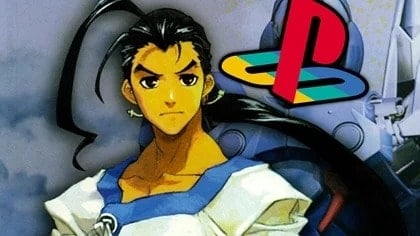Long before the company would acquire main competitor Enix (which would occur later in the early ’00s near the end of the PlayStation’s life cycle), Japanese developer and publisher Square would become Squaresoft and produce one of the largest libraries of titles for the original PlayStation. The collective library of the PS1 is one of the greatest in the history of the medium and happens to include several titles that still rank as some of the best games of all time. That more than a few of those titles are some of the games coming out of Squaresoft during the PS1 era is a testament to the quality synonymous with the studio during that time.
The PS1 era is also significant for representing Square’s greatest period of experimentation and risk taking, with the company definitively branching out from its RPG roots to provide players with fighting games, survival-horror titles, and even a kart racer. Not all of the games that Square brought to the PS1 are winners, but those that are stand the test of time as not only some of the best games on the PlayStation but also some of the best titles within their respective genres. And, as one might expect, the sheer quantity of incredible RPGs on this list is unmatched by any other developer in any other era of gaming.
25. Ehrgeiz
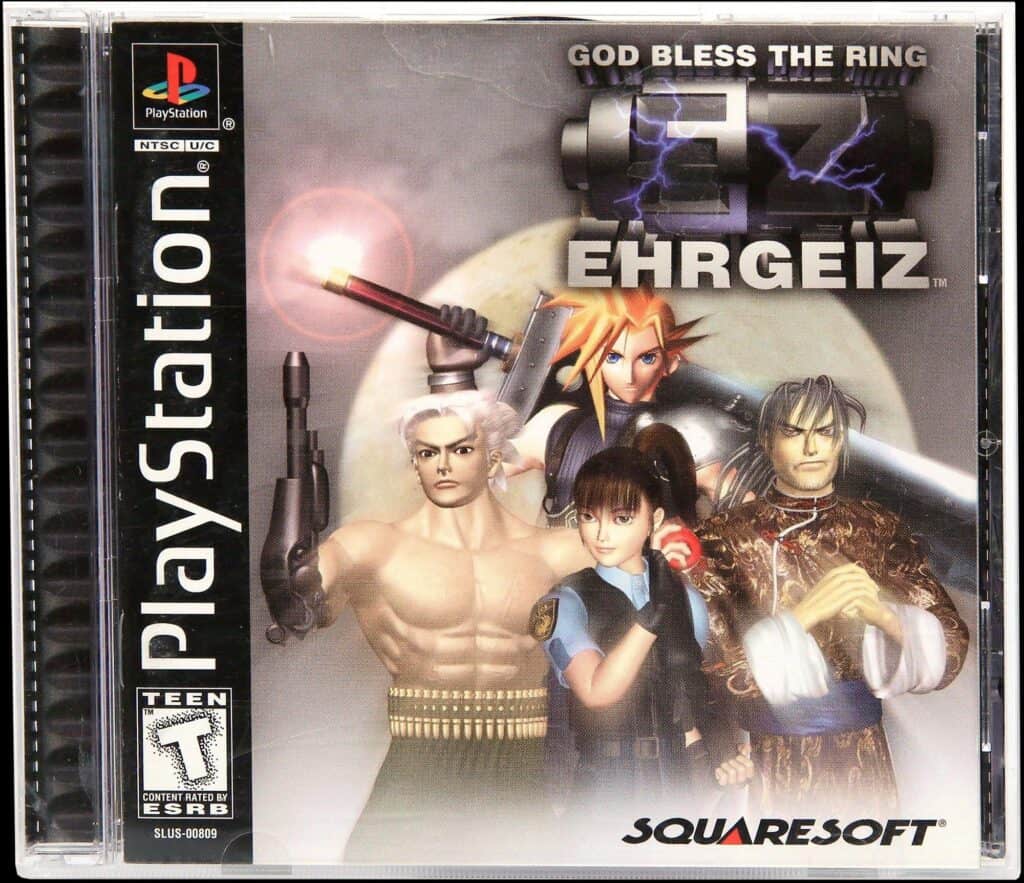
Ehrgeiz is interesting in that it is one of the only games on this list that is a port of a successful arcade game, but its offbeat and non-traditional take on the fighting genre (which borrows more heavily from wrestling than martial arts) finds itself limited in the PS1 port. The main selling point for fans eyeing the game in 1998 was that it features several playable characters from Final Fantasy VII, which by that point had already been a massive success for Square and helped to sell millions of PlayStation consoles. And, although Ehrgeiz shares DNA with some of the other fighting games coming from Square, those other titles execute the foundational mechanics of the genre better.
24. Chocobo Racing
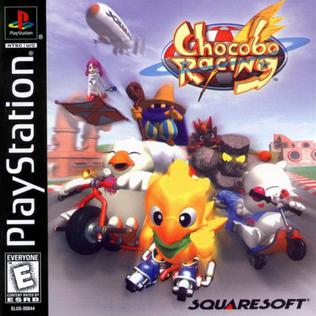
With the proliferation of kart racing games in the late 1990s following the incredible success and reception of Mario Kart 64, it was only a matter of time before Square made the decision to add their own to the pile. Enter Chocobo Racing, a charming and entertaining kart racing game that is otherwise pretty by-the-numbers. The shelf life of the game was fairly short, with the far superior Crash Team Racing releasing just two months after, and most gamers now are surprised to learn that Square ever made a kart racing game prior to Chocobo GP on the Nintendo Switch. As both Chocobo Racing and Chocobo GP prove, racing games are one genre where Square hasn’t quite landed on a successful formula yet.
23. Tobal No. 1
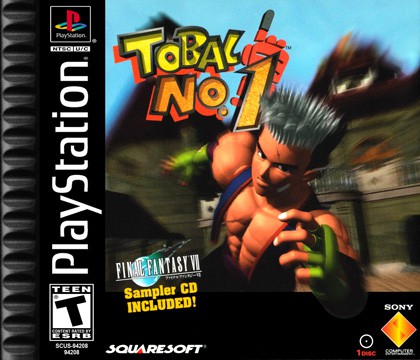
Tobal No. 1 is indirectly related to Ehrgeiz since both games come from DreamFactory and feature similar mechanics, but where Tobal beats out its later successor is in its simplicity. Rather than attempt to be a legitimate fighting game with an adventure mode attached, Tobal focuses more on being a dungeon crawler with fighting game combat. The end result is a potent mix that more games should try, and it honestly feels somewhat like a prototype for the open-world adventure mode in this year’s Street Fighter 6. Ultimately, Tobal No. 1 is mostly remembered for being the game that included the demo disc for Final Fantasy VII, prompting thousands of PlayStation owners to either buy or rent the game with the sole purpose of getting an initial glimpse at the first 3D Final Fantasy.
22. SaGa Frontier 2
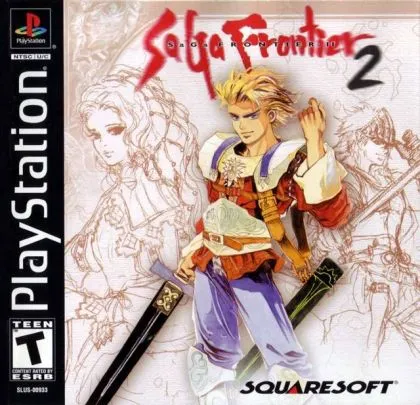
The SaGa franchise still exists as an outlier in Square’s stable of RPGs with its unique mechanics and penchant for providing players with something different within the RPG genre. The original SaGa games were known for being difficult, but SaGa Frontier 2 takes that trademark series difficulty and amps it up in some of the worst ways possible, with the greatest offender being the arbitrarily long enemy encounters and damage-sponge enemies. Aside from these flaws though, SaGa Frontier 2 is definitively a return to form for the SaGa franchise after the liberties taken with SaGa Frontier. It also features one of the most strikingly beautiful art styles of any PlayStation RPG with its watercolor aesthetic.
21. Bushido Blade 2
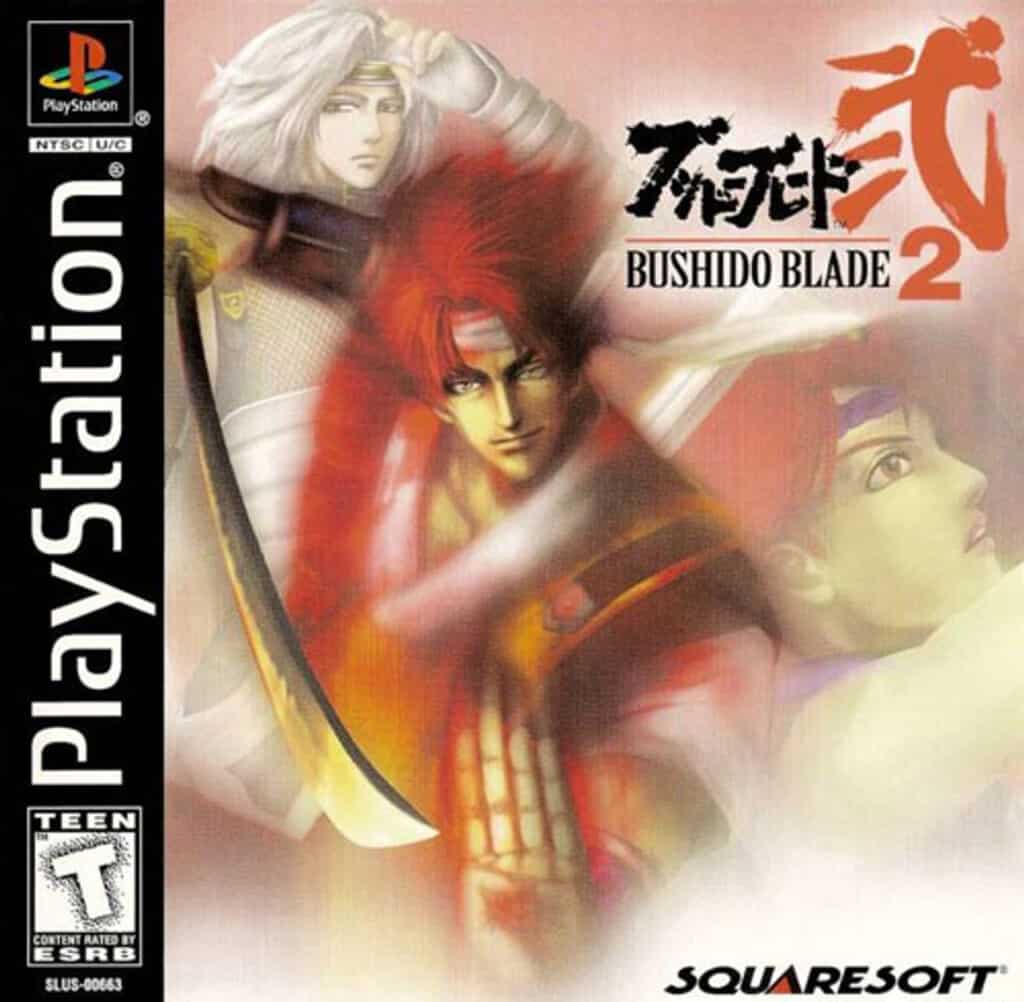
While SaGa Frontier 2‘s greatest offense is its artifical difficulty through inflated enemy HP values, Bushido Blade 2 comes in as a step-down from its predecessor thanks to its leaning on simplicity. The original Bushido Blade is a unique fighting game that arrived on the PlayStation when there were mostly arcade ports of Namco hits, and its trademark complexity and difficulty are watered down as to make the sequel more accessible. Unforuntately, the accessibility of Bushido Blade 2 comes at the cost of the game being interesting, with the new streamlined approach to combat removing everything that makes the original special and memorable.
20. Chocobo’s Dungeon 2
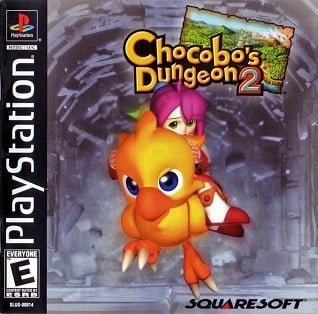
Chocobo’s Dungeon 2 is a surprisingly fun and mechanically rewarding dungeon-crawler despite its cutesy appearance. Players assume control of one of the Final Fantasy series’ signature avians as it navigates randomly generated dungeon mazes, participating in turn-based battles along the way and occasionally receiving help from companions resembling other characters from the Final Fantasy universe. The greatest aspect of Chocobo’s Dungeon 2 is its simplicity and usefulness as a quick “pick up and play” experience compared to several other Square RPGs, and the random nature of dungeons makes replay value more apparent compared to some other rudimentary dungeon-crawlers on the PS1.
19. Threads of Fate
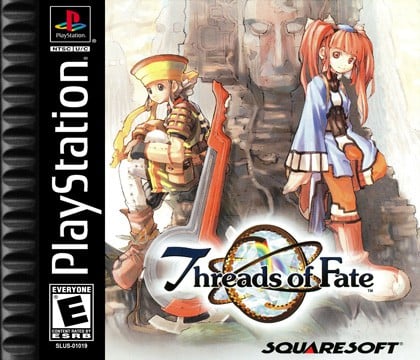
One of the only full 3D games from Square on the console is also one of the system’s more interesting action RPGs, Threads of Fate. A decidedly lighthearted game featuring male and female protagonists that players can choose from, Threads of Fate features both 3D environments and character models, in contrast to the Final Fantasy series games on PS1 which utilize 3D character models over pre-rendered backgrounds. Gameplay also occurs in real-time, with players directly controlling each character in combat. Threads of Fate features some great writing and humor for a game of its era, and it’s whimisical tone and low-stakes narrative stand in contrast to most of Square’s other RPGs on the system.
18. Legend of Mana
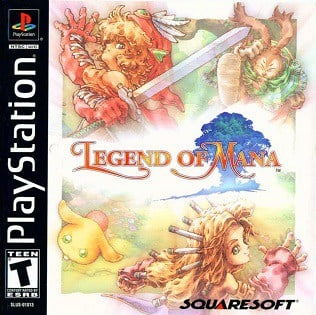
Legend of Mana is the fourth game in the long-running Mana series, which goes by the name Seiken Densetsu in Japan. Like its predecessors, Legend is another quality action RPG with engaging real-time combat, a beautiful art style, and multiplayer functionality. Where Legend of Mana differes from other games in the series though is in its unique “Land Make” mechanic, which sees players build out the game’s world based on their actions and quests. The Land Make system is arguably Legend of Mana‘s most interesting idea that it brings to the table and one of the things that helps it stand out when comparing it to Square’s other action RPG on the console Threads of Fate.
17. Final Fantasy Origins
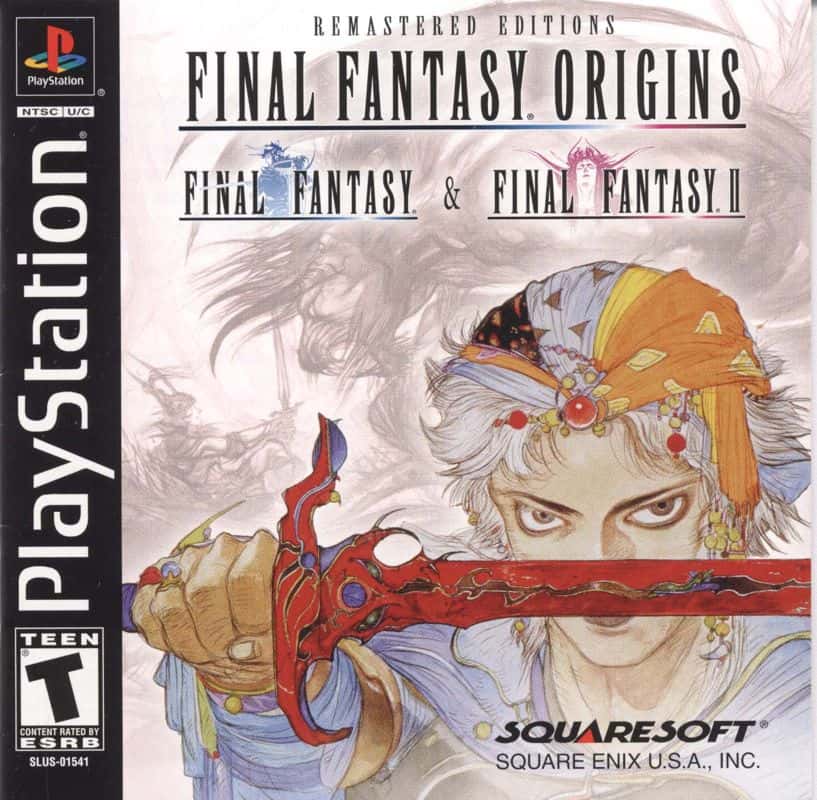
Although it’s essentially the weakest of the Final Fantasy collections on the PlayStation, Final Fantasy Origins is an essential look back at the series’ origins and brings the great WonderSwan ports of Final Fantasy and Final Fantasy II to a wider audience. These ports update the graphics of each title and add in some supplementary material like extra dungeons and new translations while maintaining the core DNA of the original games. Still, the first two Final Fantasy games exist as more of a proof-of-concept than anything else, and despite their importance these versions pale in comparison to later ports of the first two games in the franchise. Final Fantasy Origins is mostly a series artifact, but it’s some of the most fun players can have with a history lesson.
16. Parasite Eve II
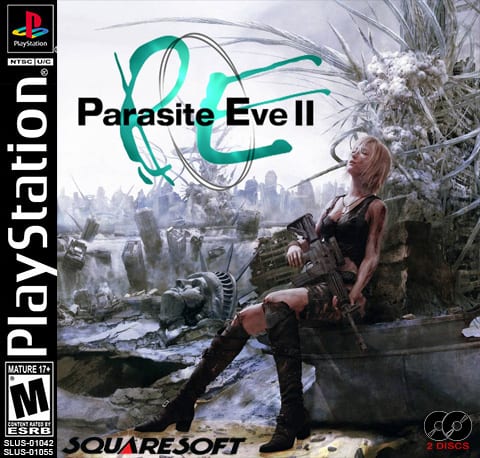
Parasite Eve II might not reach the heights of its predecessor, but what it does it does well. Much like Bushido Blade 2, Parasite Eve II simplifies the gameplay of the original and eschews many of the RPG aspects of the first Parasite Eve to essentially become a pure survival-horror experience. Battles taking place in real-time is just the start, as Parasite Eve II also streamlines the equipment and skill systems from the first game while also introducing a more robust crafting economy not too dissimilar from Final Fantasy VIII‘s approach to gear upgrades. In the case of Parasite Eve II, its leanings toward accessibility and simplicity don’t hurt it as much as other Square sequels, and it’s a criminally overlooked survival horror gem on the PS1.
15. SaGa Frontier
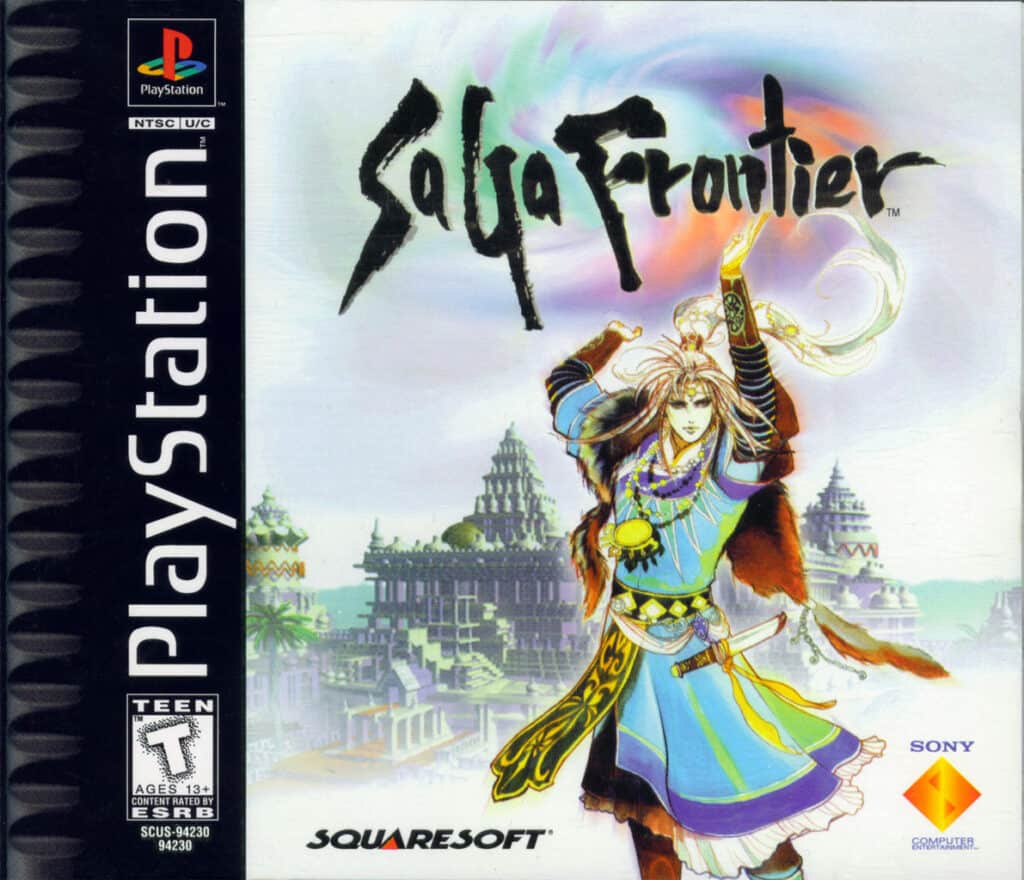
Following the unprecedented success of Final Fantasy VII, Squaresoft began bringing over several titles to the PS1 in the West that might have otherwise remained Japan-exclusive thanks to the newfound interest of Western audiences in RPGs. One of the earliest of these trial games is SaGa Frontier, which is actually the seventh game in the SaGa series but both the first to release in North America under the SaGa name and only the third game to make it to the West in the franchise. The main defining feature of SaGa Frontier is the non-linear approach to the game’s story and ability of players to choose any of the game’s characters as a starting point before eventually linking up with the rest of the party as their paths converge. SaGa Frontier is brutally difficult in comparison to Final Fantasy VII, but it’s also a great game any RPG fan should experience.
14. Front Mission 3
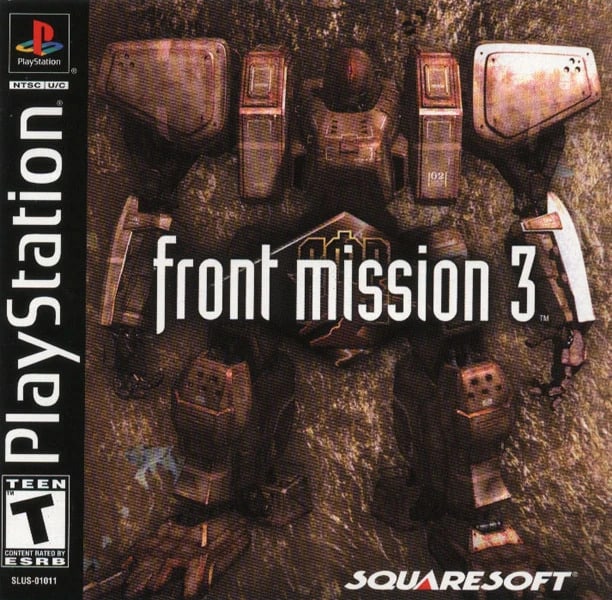
The PlayStation features plenty of great tactical-RPGs but very few of them allow players to control mechs rather than on-foot combatants. Again, thanks to the success of other Square titles in the West, the company finally decided to bring over its Japan-exclusive mech tactics series Front Mission with the third game in the franchise. Part Armored Core and part Final Fantasy Tactics, Front Mission 3 has an incredibly deep and grounded narrative that imagines a near future where Earth’s geopolitical boundaries are completely redrawn following a near world-ending conflict, and the game treats its subject matter with the gravity it deserves. Being able to customize and tactically position different types of mech units allows for plenty of strategizing before encounters and the pull of the series is evidenced in the Front Mission remakes coming to the Switch.
13. Bushido Blade
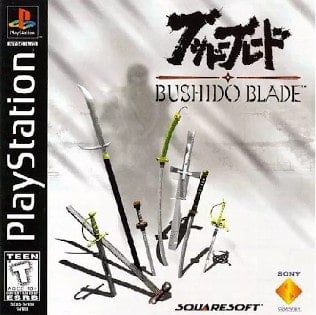
Long before indie hits like Nidhogg pit players against one another in tense, sudden-death one-hit encounters, Bushido Blade let players live out their Samurai dreams on the PS1. Unlike most other fighting games on the system at the time, Bushido Blade is as much about the weapon each character wields as much as its about their disparate fighting styles, and the ability for encounters to whittle down to just a handful of well-placed hits significantly ups the tension compared to most other contemporary fighting games. It’s unique approach to the genre and subtle complexity of its mechanics was watered down significantly for the sequel, but the original Bushido Blade is a time capsule containing what might be Square’s best-ever attempt at a fighting game.
12. Brave Fencer Musashi
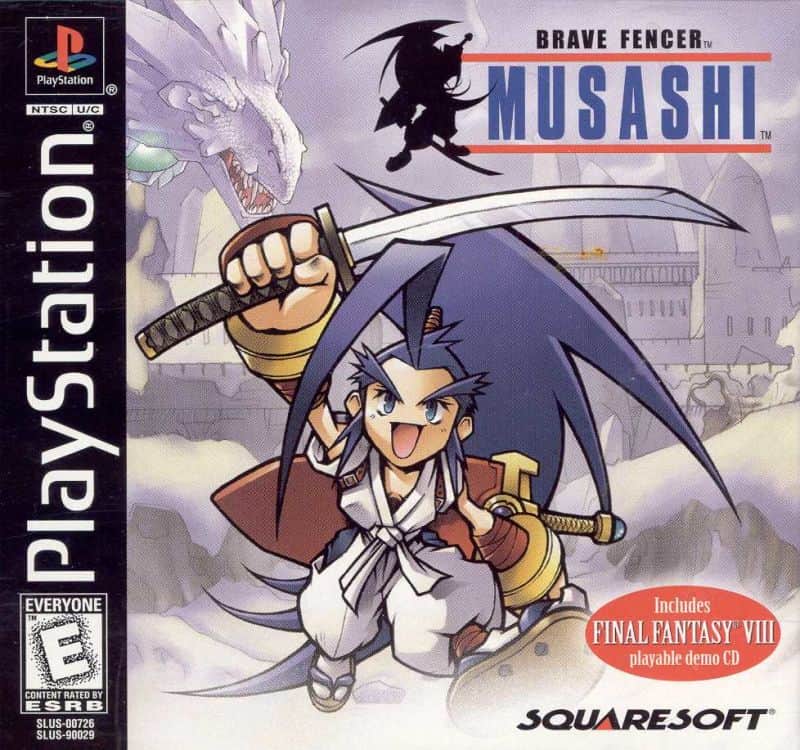
Completing the core trilogy of pure action-RPG experiences that Squaresoft brought to the PS1 is the charming and unique Brave Fencer Musashi, which isn’t just a great game but also one of the more rare physical PS1 games to come across for collectors. Equal parts Squaresoft and Legend of Zelda, Brave Fencer Musashi features a few more RPG mechanics than one might see in Nintendo’s flagship franchise but still retains all the accessibility and inventiveness that The Legend of Zelda is known for. Aside from the game itself (which truly might be the best action-RPG coming from Square prior to Final Fantasy XVI), Brave Fencer Musashi featured the demo disc for Final Fantasy VIII, giving players their first taste of the anticipated follow-up to one of the greatest RPGs ever made.
11. Chrono Cross
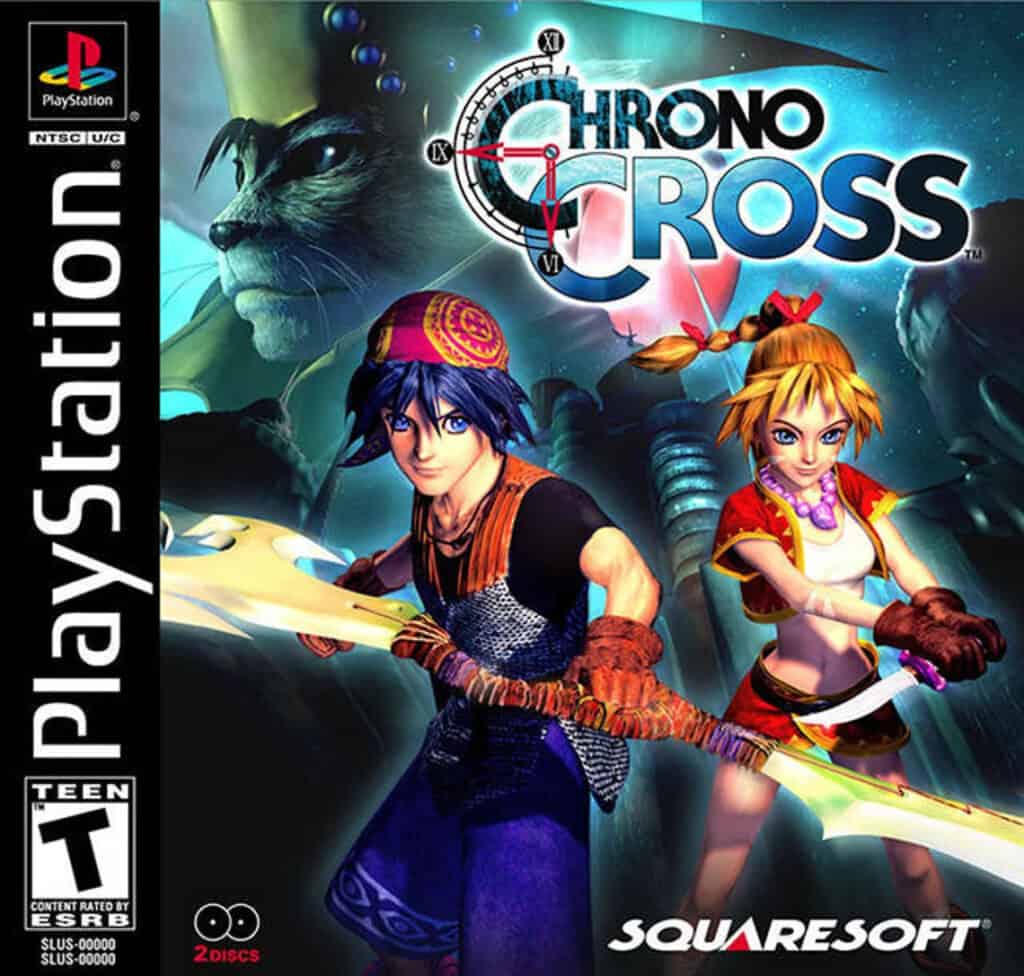
The greatest flaw of Chrono Cross is that it should be much better than it is, especially considering the pedigree that the title carries in its name alone. A quasi sequel to Chrono Trigger, Chrono Cross is honestly somewhat hindered by its connections to one of the greatest RPGs and greatest games of all time, with many fans walking away disappointed that the link between the two is less obvious than one might expect. That said, Chrono Cross is a great RPG with plenty of interesting and three-dimensional characters to recruit into the party, and the deep, meaningful connections to Chrono Trigger are there as long as players are willing to go looking for them.
10. Final Fantasy Anthology
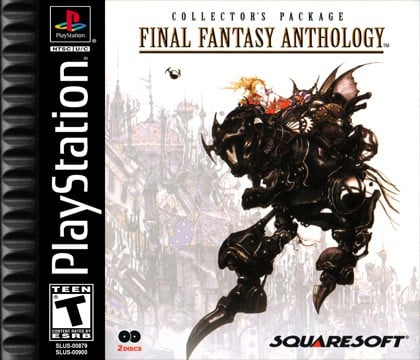
The most significant contribution of Final Fantasy Anthology is that it is responsible for finally bringing Final Fantasy V to Western gamers in an official capacity. Fan-translations of the Japan-exclusive Final Fantasy games via emulation were far from commonplace in this era and mostly the purview of hardcore fans and import enthusiasts. Anthology makes emulating Final Fantasy V a moot point by providing players with the first official Western release of the game, and the fact that Final Fantasy VI is along for the ride is just the icing on the cake. The SNES era of Square games is the only other time period that can even come close to competing with the PS1 library of games from the publisher, and Anthology is just one of three must-have collections chronicling the studio’s past.
9. Final Fantasy Chronicles
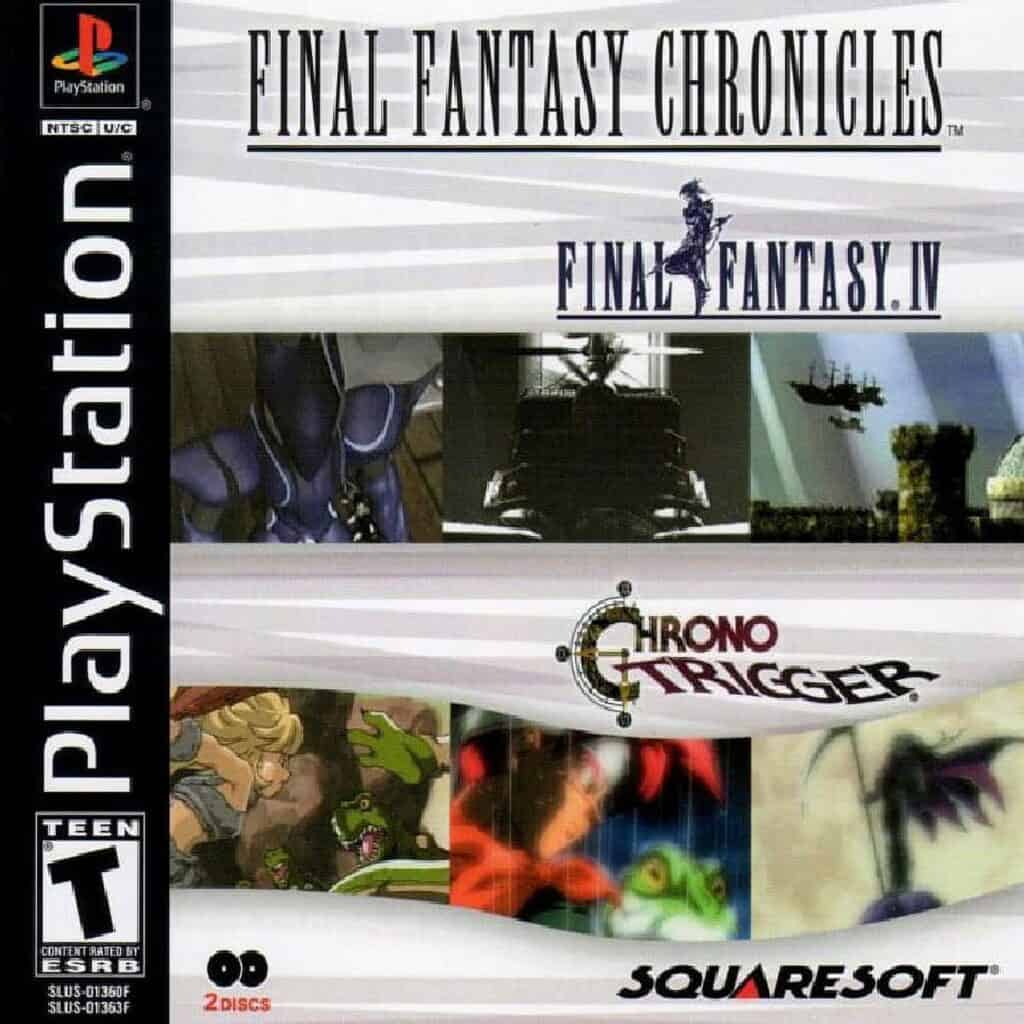
Like Anthology, Final Fantasy Chronicles packages together two of the best SNES-era Square games with both Final Fantasy IV and Chrono Trigger. Either one of these games can make a strong case for being the best RPG of all time, and that both of them are together in a single package is one of the greatest gifts Squaresoft could give to PS1 players. Not content to let these editions be simple ports, though, the Final Fantasy Chronicles editions of each game feature brand-new FMV and animated cutscenes that mirror the quality of the cutscenes included in the mainline Final Fantasy games on the PS1.
8. Einhander
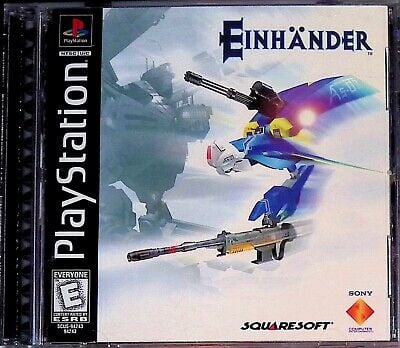
Squaresoft’s lone attempt at making a Shmup (shoot ’em up game) is such a masterpeice that it’s practically criminal the studio has yet to make another title within the genre. Einhander succeeds by absolutely nailing the fundamentals of what makes the best Shmups, with powerful weapons, great ship handling, complex and challenging bosses and bullet patterns, and an absolutely killer soundtrack. Like Brave Fencer Musashi, obtaining a physical copy of Einhander in 2023 is no easy feat and it is a testament to the game’s popularity and legacy that few copies exist in the wild. Einhander may be a left-field experiment from a studio famous for RPGs, but it’s one that shows Squaresoft is much more than a one-trick pony.
7. Parasite Eve
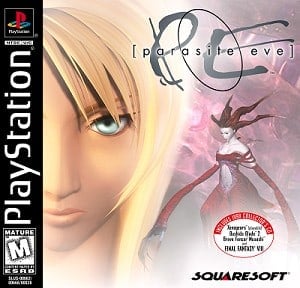
Following Final Fantasy VII‘s success, 1998 was one of the busiest years in Square’s history. Releasing one game after another in near rapid succession, the year capped off with the release of Parasite Eve, which is the company’s sole IP within the survival-horror genre. Not content to be a purely survival-horror experience akin to Resident Evil, Parasite Eve injects plenty of signature Squaresoft RPG mechanics into the proceedings to be a survival-horror game like no other. Protagonist Aya Breya is an interesting character capable of carrying the franchise (as evidenced by her appearance as the series protagonist across three games) and the turn-based, tactical approach to combat makes it unique within the (at the time) burgeoning survival-horror genre.
6. Final Fantasy VIII
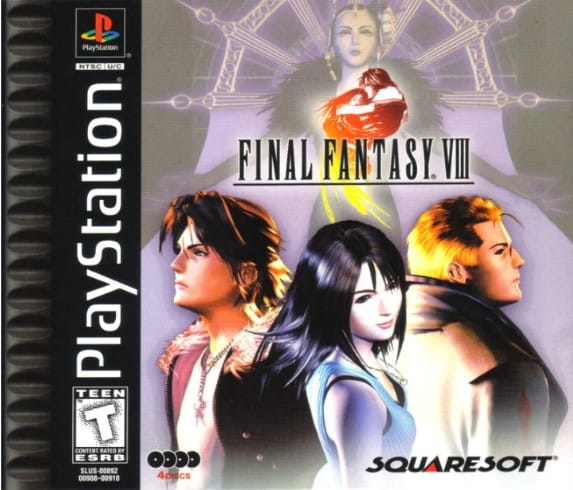
If this list proves anything, it’s that the PS1 era shows Squaresoft willing to take massive risks, and perhaps no title embodies that spirit more succinctly than Final Fantasy VIII. While Final Fantasy VII features some of the most beginner-friendly mechanics is a perfect first RPG experience for genre newcomers, Final Fantasy VIII is one of the more complex and intricate games in the series. That the mechanics and systems of Final Fantasy VIII don’t appear in any other mainline series title is evidence enough of its mechanical depth, and for those that are willing to learn and embrace the title’s quirks, there are substantial rewards. It’s story might not be anything to write home about in comparison to other Final Fantasy games, but its gameplay is the stuff RPG fans dream of.
5. Final Fantasy IX
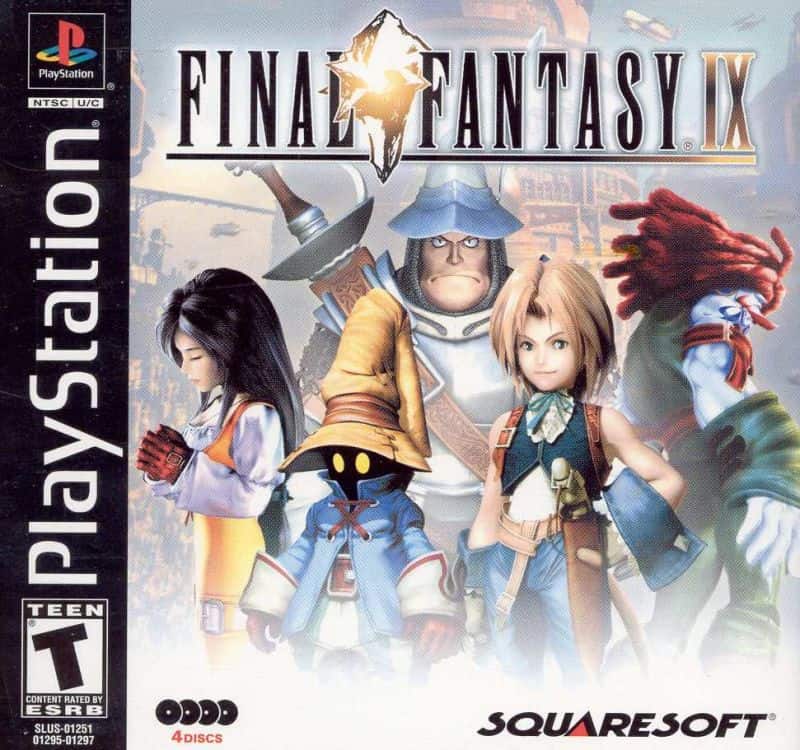
Just slightly eking out a victory over Final Fantasy VIII is the final game in the series for the PS1, Final Fantasy IX. Following the drastic tonal and atmospheric departures of both Final Fantasy VII and VIII, Final Fantasy IX returns players to a traditional high fantasy setting modeled after medieval Europe. The game has mechanics and systems that subtly call to mind the series’ origins and past highlights while also cribbing some of the best ideas from its immediate predecessors. And, lest it be forgotten, Final Fantasy IX happens to feature one of the best narratives and emotionally resonant scores of any game in the series, serving as a fitting swansong to what is perhaps the franchise’s single greatest era.
4. Vagrant Story
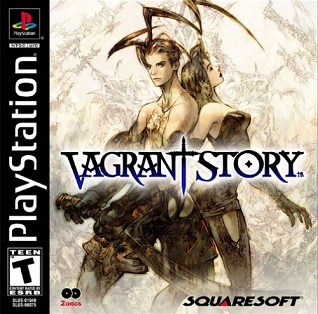
Yasumi Matsuno holds a special place in many RPG fans’ hearts thanks to his many meaningful contributions to the genre, and one of those is the wholly unique and incredible Vagrant Story. Vagrant Story is most definitely an RPG, but it’s one that is so radically different from every other game in the genre that it still stands today as a one-time experiement several fans wish would receive a remaster or remake. The game’s cinematic opening rivals that of some of the PS1’s other heavy hitters (especially Metal Gear Solid) and the mature and dark narrative that mirrors the political and religious struggles of medieval Europe treats players with respect while also injecting plenty of surprising fantasy tropes. Vagrant Story‘s impeccable combat, which is a hybrid between traditional RPG mechanics and tactical positioning and targeting in real-time, is the cherry on top of a true PS1 classic.
3. Final Fantasy Tactics
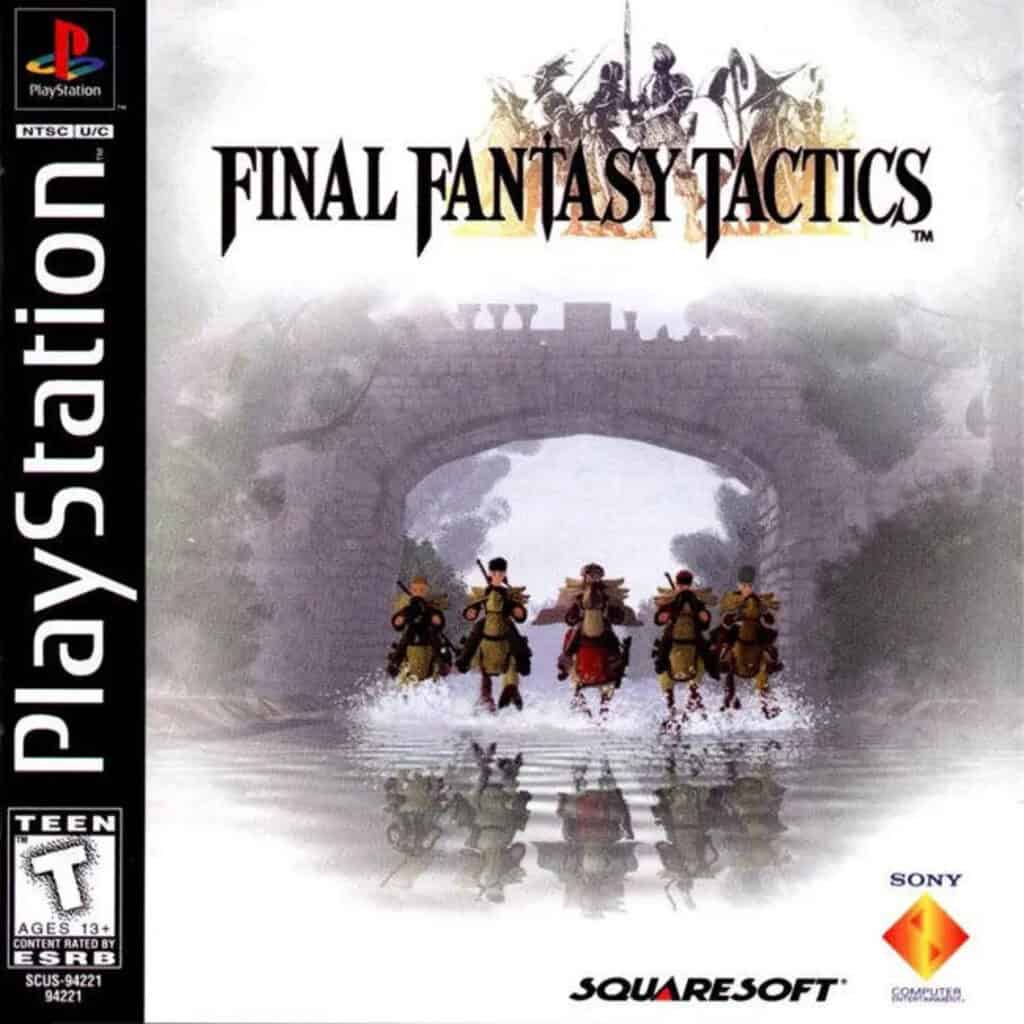
Speaking of Yasumi Matsuno, the only game from the creator that can outdo Vagrant Story is his first title for Square following his work on Tactics Ogre, the timeless classic that is Final Fantasy Tactics. Tactics is an incredibly demanding and complex game that also uses its Final Fantasy license to great effect by subtly indoctrinating new and unassuming players into the tactics genre using familiar characters and job types. Like Vagrant Story, Final Fantasy Tactics features a narrative that is much darker than many of its contemporaries, and the ability to have a new experience every time you replay the game is testament to its timeless quality. Simply put, one of the absolute best tactics-RPGs ever made, if not the absolute best.
2. Xenogears
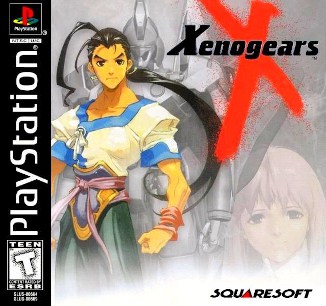
Arriving for the PlayStation in 1998 less than a year from the release of Final Fantasy VII is the only other Square PS1 game that could potentially be considered the company’s greatest game on the system, Xenogears. After starting its development as the original version of Final Fantasy VII, the game was deemed to be too dark and complex for the more mainstream audience of Square’s flagship franchise and the company proceeded to give director and writer Tetsuya Takahashi more creative freedom in making a title all his own with a team of his choosing. Tying in mechs, Gnosticism, Fruedian psychology, and Christian iconography, Xenogears ia a game unlike any other, PS1 or otherwise. Thanks to the completely off-the-wall story that the game features, it continues to hold near mythical reverence among RPG fans, and thankfully it also has the gameplay to back it up.
1. Final Fantasy VII
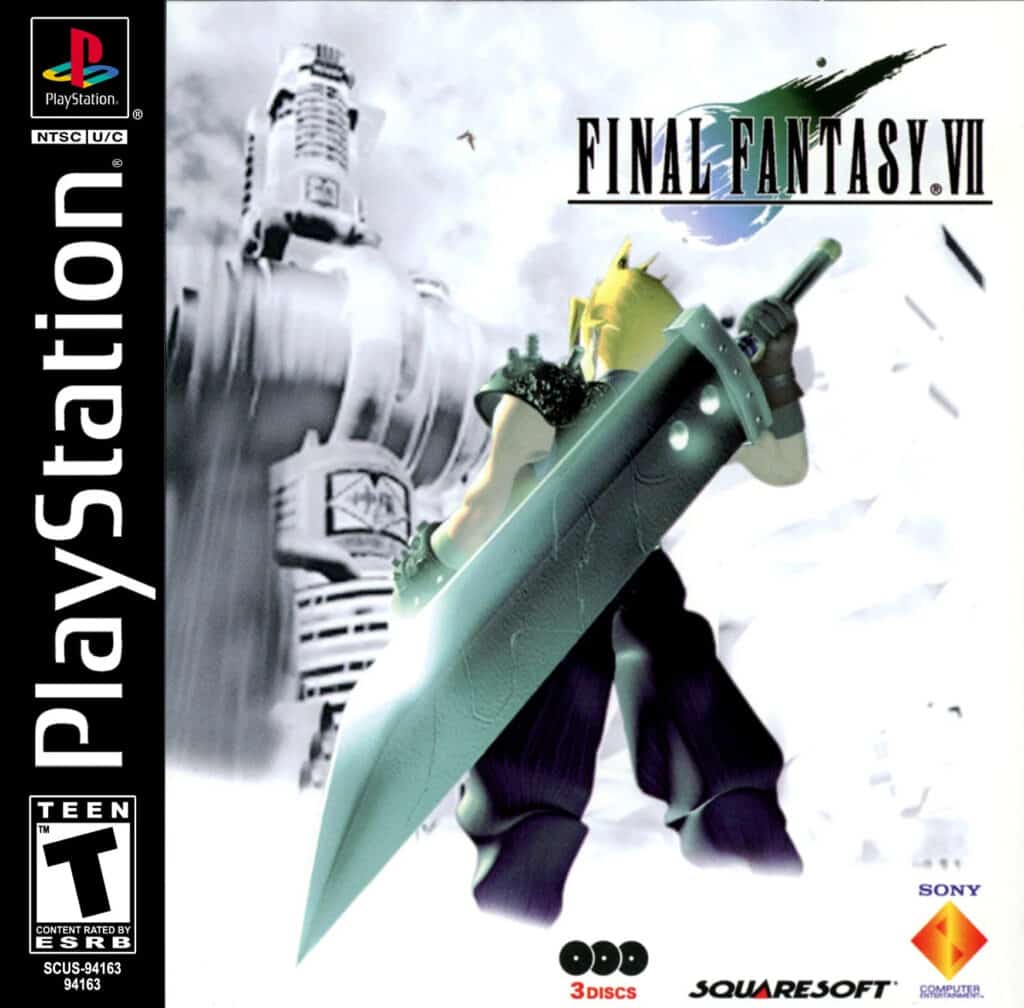
Final Fantasy VII is such an important milestone in gaming that it’s nearly impossible to make a list ranking PS1 RPGs or similar without placing it at the very top. Square’s relationship with Nintendo was something of a sacred cow, and for the company to partner with Sony and their new console rather than bring the next game in the much-loved Final Fantasy series to the SNES’ successor came as a shock within the industry. With all eyes on Square to see how they would follow-up the incredible Final Fantasy VI, the developers pulled out every imaginable stop to deliver one of the most impactful games of all time. Final Fantasy VII didn’t just introduce a whole new legion of fans to the franchise, it helped to make Sony the definitive winner of the 5th console generation over competitors Nintendo and Sega.
Beyond its importance in the history of the medium, though, Final Fantasy VII is just an incredible game. It builds off of the mechanics of Final Fantasy VI, providing players with what is arguably the most beginner-friendly and approachable game in the series. Further, its narrative featuring themes of identity and dealing with mental health issues, is one of the best across a series known for elevating the art of storytelling within the medium. Final Fantasy VII is both the best Squaresoft game for the PS1 and perhaps the best game to release on the console as a whole.
